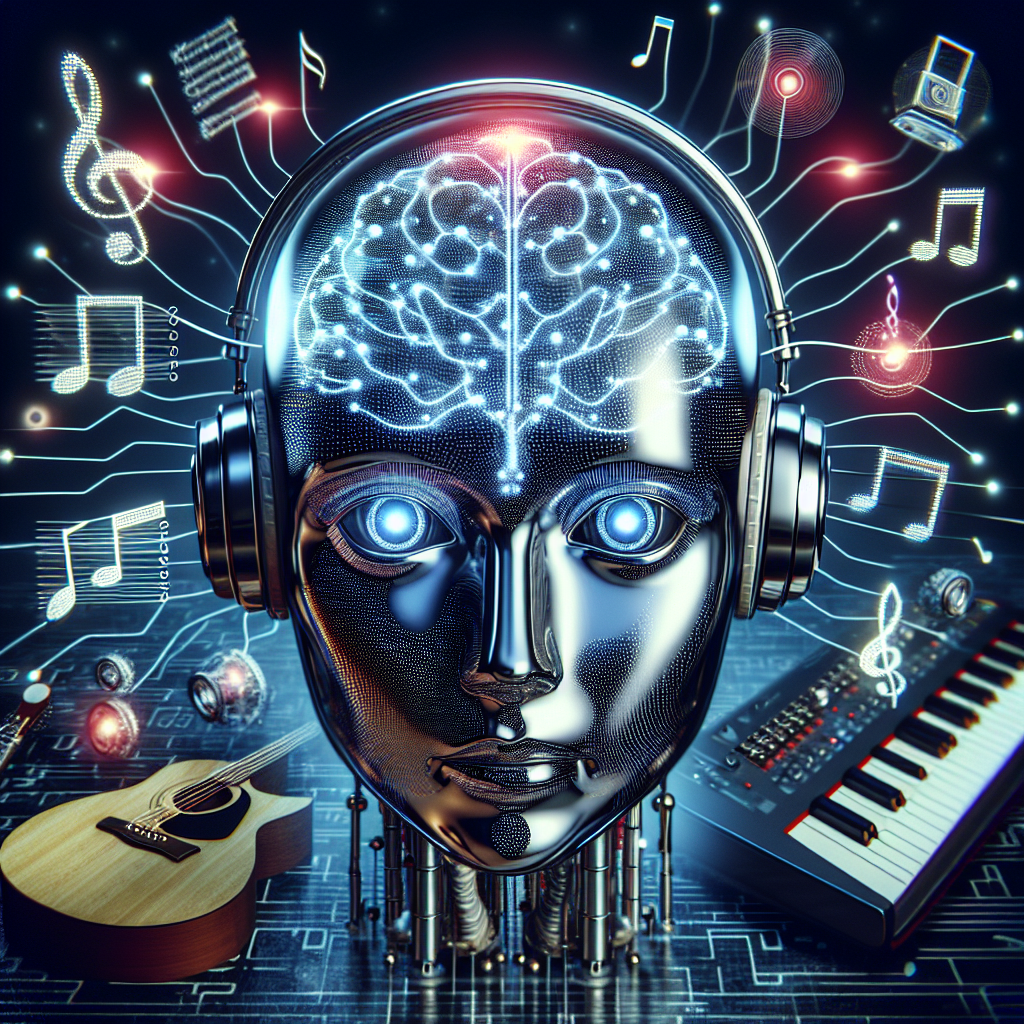In recent years, artificial intelligence (AI) has dramatically changed the way we consume music. AI technology has revolutionized the music industry by making it easier for artists to create, distribute, and monetize their music. AI has also provided music enthusiasts with new ways to discover and enjoy music. In this article, we will explore the impact of AI on the future of music consumption trends and how it is shaping the industry.
AI and Music Creation
One of the most significant impacts of AI on the music industry is its ability to assist in music creation. AI algorithms can analyze vast amounts of data to identify patterns and trends in music, helping artists create new and innovative sounds. For example, AI-powered tools like Amper Music and AIVA can generate original music compositions based on specific criteria provided by the user. These tools have made it easier for artists to experiment with different styles and genres, leading to a more diverse and dynamic music landscape.
AI and Music Distribution
AI has also transformed the way music is distributed and consumed. Streaming services like Spotify and Apple Music use AI algorithms to personalize the music recommendations for each user based on their listening habits and preferences. This has led to a more personalized music experience for listeners, allowing them to discover new music that aligns with their tastes.
In addition, AI has improved the efficiency of music distribution by automating tasks like metadata tagging, royalty tracking, and content moderation. This has enabled artists to focus on creating music while AI takes care of the administrative tasks required for distribution. As a result, artists can reach a wider audience and monetize their music more effectively.
AI and Music Discovery
AI has also revolutionized the way music is discovered. Platforms like Pandora and Spotify use AI algorithms to analyze user behavior and preferences to recommend new music that users are likely to enjoy. This has made it easier for users to discover new artists and songs that they may not have found otherwise. AI-powered recommendation systems have also helped artists gain exposure to new audiences, leading to increased visibility and recognition.
AI and Music Consumption Trends
The rise of AI in the music industry has led to several emerging trends in music consumption. One of the most notable trends is the growing popularity of personalized music experiences. AI-powered platforms like Spotify and Pandora offer personalized playlists and recommendations based on user preferences, creating a more immersive and tailored music experience for listeners.
Another trend is the increasing use of AI in live music performances. Artists are incorporating AI technologies like virtual reality and augmented reality into their live shows to create interactive and engaging experiences for audiences. AI-powered visuals and animations can enhance the overall concert experience, making it more immersive and memorable for fans.
Furthermore, AI has enabled the rise of virtual influencers in the music industry. Virtual influencers like Lil Miquela and Balmain’s Shudu have gained popularity on social media platforms, attracting millions of followers and collaborations with major brands. These virtual influencers use AI-generated content to create music, videos, and social media posts, blurring the line between reality and fiction in the music industry.
FAQs
Q: How is AI used in music creation?
A: AI is used in music creation to assist artists in composing, producing, and arranging music. AI algorithms can analyze data to identify patterns and trends in music, helping artists create new and innovative sounds.
Q: How does AI impact music distribution?
A: AI has transformed music distribution by personalizing music recommendations for users, automating administrative tasks like metadata tagging, and improving the efficiency of content moderation. This has made it easier for artists to reach a wider audience and monetize their music effectively.
Q: What are some examples of AI-powered music platforms?
A: Some examples of AI-powered music platforms include Spotify, Pandora, Amper Music, and AIVA. These platforms use AI algorithms to personalize music recommendations, generate original music compositions, and analyze user behavior to improve the music discovery experience.
Q: How has AI changed music consumption trends?
A: AI has led to personalized music experiences, interactive live performances, and the rise of virtual influencers in the music industry. These trends have created a more immersive and engaging music consumption experience for listeners and fans.
In conclusion, AI is reshaping the future of music consumption trends by revolutionizing music creation, distribution, and discovery. The integration of AI technologies in the music industry has led to a more personalized, efficient, and innovative music experience for artists and listeners alike. As AI continues to evolve, we can expect to see even more groundbreaking changes in the way we consume and interact with music.

